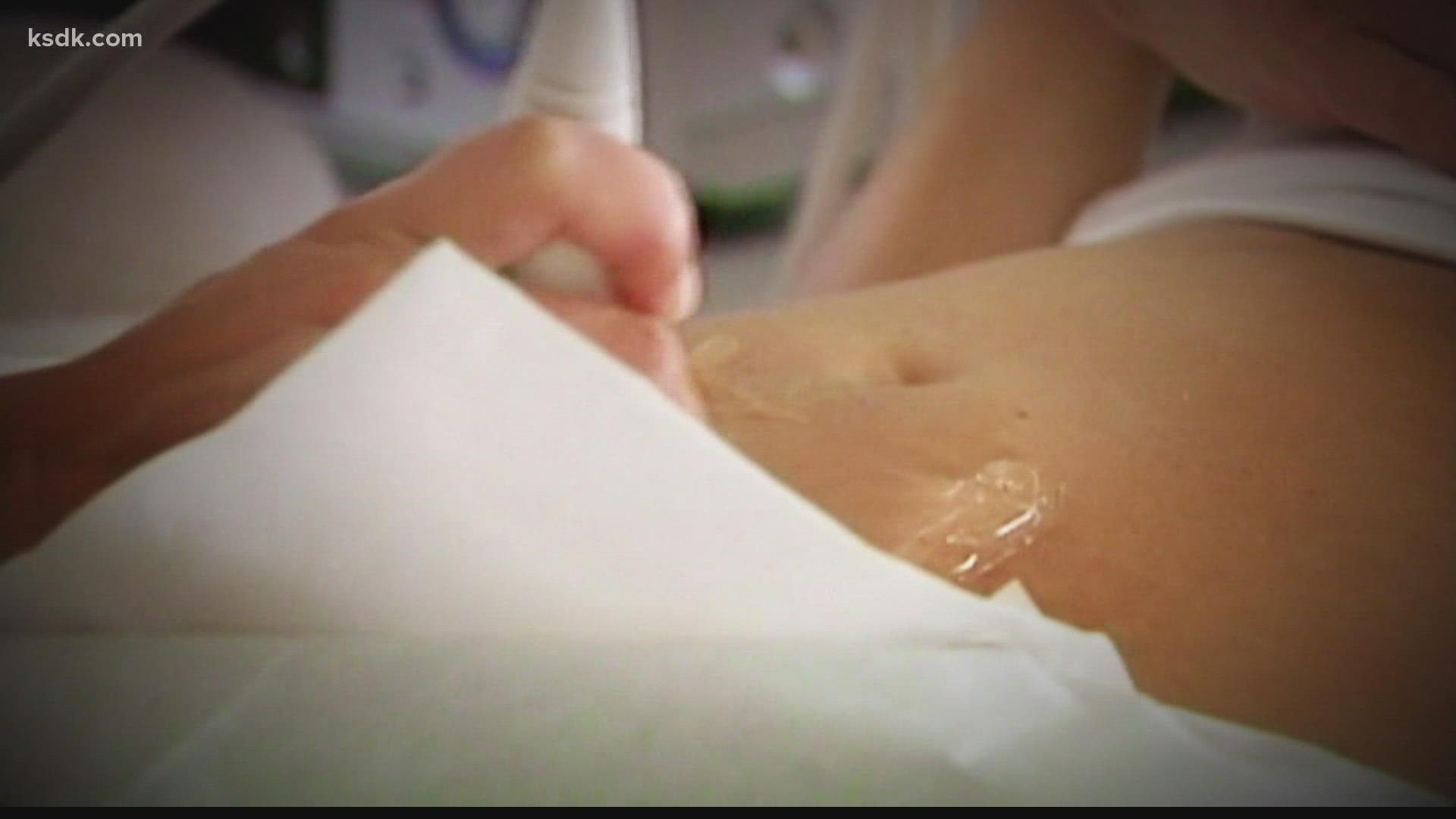ST. LOUIS — In her 15 years as a high-risk obstetrician, Dr. Ebony Carter says it's unlike anything she's ever seen before.
Currently, Dr. Carter is at Barnes Jewish Hospital with Washington University's School of Medicine.
She says they are seeing a huge uptick in the number of pregnant patients who are being admitted.
"The rates across the St. Louis region are ridiculous anyway, so you know upwards of 30% of COVID tests are returning positive. That number is even higher for the pregnant patients that we're caring for," Dr. Carter notes.
She also talks about the vaccination rates being much lower for pregnant women.
"Somewhere between you know 25% to 30% of pregnant patients are vaccinated compared to the general population, so pregnant patients have a lot less protection," Dr. Carter says.
Patients are voicing concerns to Dr. Carter about what the vaccine will do to their baby, claiming there isn't enough data.
She says, "We probably have more data right now on the vaccine than any other thing that we give to people in pregnancy, and the data overwhelmingly, in every direction, is saying that the vaccine appears to be safe."
Dr. Carter goes over two studies that stood out to her, as the CDC publishes a weekly report.
"One of the very recent ones, they actually looked at 40,000 pregnant patients who've gotten the vaccine over the course of the last year and there was no signal for harm. You worry about having a pre-term birth or your baby's going to be super small and in that study none of those things were true."
The Barnes Jewish doctor also goes over another recent study involving the vaccine and the antibody response.
"Essentially, regardless of when you got it, antibodies increased. They were good, but the best defense that your body can mount this was a booster. There were 20 patients in that study, who would have also gotten the booster and they had the best response of all," she shares.
Dr. Carter says this is extremely important especially in the midst of the highly contagious Omicron.
She adds, unvaccinated pregnant patients with the virus face the worse part of the disease.
"Because when you're pregnant, you have this little foreign alien living in your body and your body doesn't want to attack the baby, so you kind of tamp down your immune system, which is great for the baby, but that's terrible for the mom. She's not able to fight cold or flu or any of those things," she adds.
During the course of the pandemic, Dr. Carter acknowledges new struggles.
Pre-term birth rates are going up.
They also face pregnant patients getting so sick to the point where their heart and lungs aren't working anymore.
"We first started having to put pregnant patients on an ECMO and that's the heart long bypass machine. We had no experience with it, that doesn't happen. Before COVID, we had no experience dealing with that and now we've become very experienced because we've had so many patients who were in that situation," she shares. "So, as that moment is starting to approach, you have to make some really serious decisions. Would you want a C section if the baby is starting to go into distress? If you are unable to make decisions for yourself, who would you want to make decisions for you? It's end of life discussions."
She tells 5 On Your Side she's not used to having these discussions in pregnancy, yet she's found herself having those conversations more often than she'd like to share.
You could still get a breakthrough infections while vaccinated, but Dr. Carter explains the vaccine is doing a good job of keeping most people out of the hospital or on a ventilator.
"In my personal experience, I have not had a critically ill pregnant patient who was vaccinated," Dr. Carter admits. "I understand you don't want to take anything extra in pregnancy, but I've now had an up-close and personal first-row seat to this pandemic and they should be infinitely more scared of getting infected with COVID."

